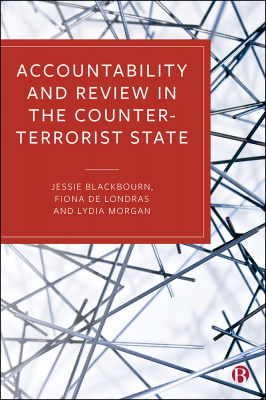 It was very clear from conversations with interviewees that they sought to effect change through their engagement in counter-terrrism review, although the nature of the review in question might well determine its desired impact. For most of our interviewees, the question of whether review activities led directly to change, including the revision of approaches, laws or policies that seemed not to be fit for purpose, was not determinative of whether they considered that the review had been impactful. They understood that impact was not linear. Reflecting this, one interviewee we spoke to, who works with a regulatory mechanism, saw impact as involving a range of activities from responding to government consultations, to making proposals for reform of law, policies and procedures, and making specific recommendations to the agencies and actors that they regulate.
It was very clear from conversations with interviewees that they sought to effect change through their engagement in counter-terrrism review, although the nature of the review in question might well determine its desired impact. For most of our interviewees, the question of whether review activities led directly to change, including the revision of approaches, laws or policies that seemed not to be fit for purpose, was not determinative of whether they considered that the review had been impactful. They understood that impact was not linear. Reflecting this, one interviewee we spoke to, who works with a regulatory mechanism, saw impact as involving a range of activities from responding to government consultations, to making proposals for reform of law, policies and procedures, and making specific recommendations to the agencies and actors that they regulate.
That this interviewee was conscious of the importance of being able to influence conversations across many different planes reflects that understanding that ‘impact’ is not a straightforward idea. Instead, it is diffuse and operating on many different levels. Related to this, determining whether a counter-terrorism review mechanism has been impactful, or has realised its capacity for action, is challenging and requires careful handling.
However, our interviewees were of the view that there were certain factors that helped to determine different review mechanisms’ capacity for action, or capacity to exert influence. Some of these were entirely unpredictable, such as the intensification of public or media attention on a particular issue, a public ‘appetite for action’,or a political decision to revisit a law or policy after a change of government. In respect of such factors, the reviewer or review mechanism needs to have a certain amount of nous in order to be able to read situations, see opportunities to influence things, and then act to make the most of those opportunities.
In addition to these ‘circumstantial’ factors, our interviewees indicated a number of other, more stable factors that are relevant to a review mechanism’s capacity for impact. These include the standing and modes of operation of a review mechanism, the form and nature of a review, the passage of time (or, sometimes, the ability to undertake and complete prompt review), and what might best be described as ‘pitch’, that is, the way in which the conclusions of a review are framed or recommendations put. This is a delicate and challenging point: on the one hand, a review that is especially forthright about failures, implications for rights, societal impact and so on may be perceived as challenging a key policy or approach in counter-terrorism in an unhelpful or oppositional way, and not well received by government. On the other hand, a review that elides these challenges where they exist, even if this is done for pragmatic reasons and in the hope of affecting positive change, might fail adequately to challenge the counter-terrorist state. Reviewers must make judgements about how to ‘pitch’ their reviews, and about what issues to press and which they might not focus on.
The final factor on impact that emerged from the interviews was the question of to whom key decision-makers were likely to listen. Our interviewees showed an acute awareness that some review mechanisms are given more weight than others, especially by government, and that this had implications for how they could ensure their review was impactful. Clearly, this raises questions of how to ensure that decision-makers might listen to and be open to a greater diversity of voices and review mechanisms, but it also raises questions of how the actors within the counter-terrorism review assemblage negotiate this challenge through their own actions.
This is adapted from Chapter 3 of Accountability and Review in the Counter-Terrorist State
